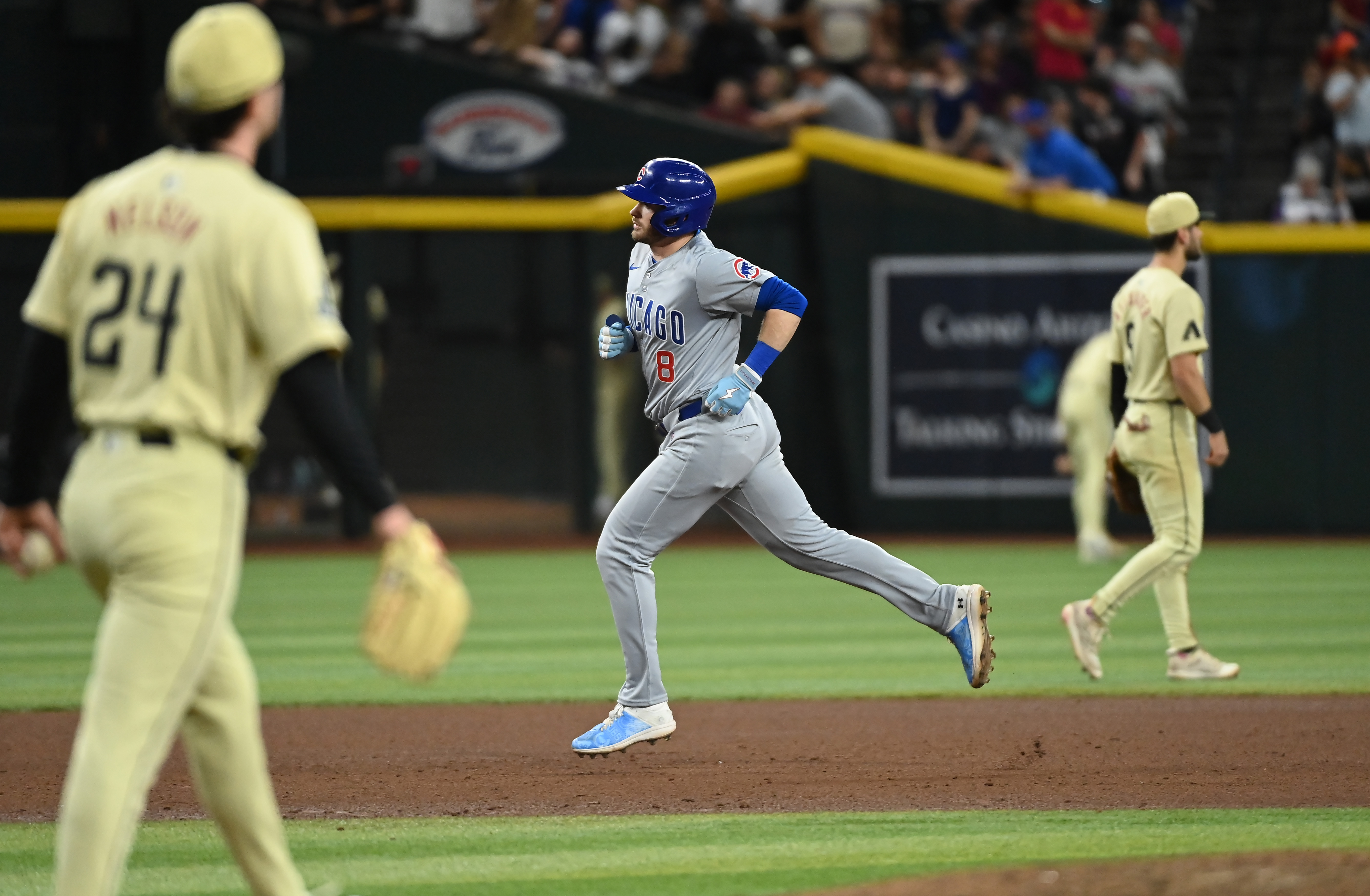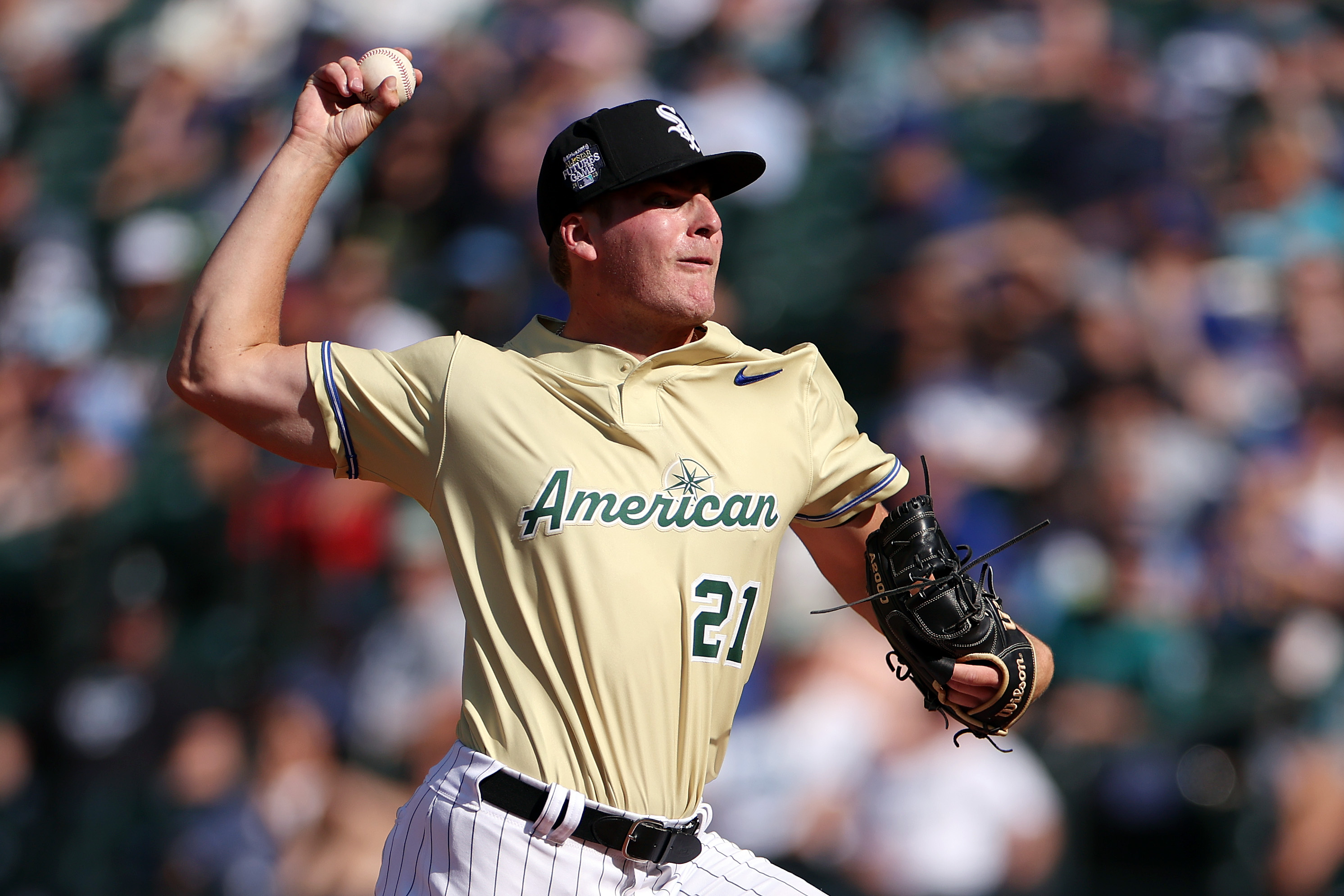While the league and the union discuss how major leaguers would be paid during a shortened 2020 season, here’s a question: How will minor league players be played during a shortened 2020 season?
And while two of the White Sox top prospects, Luis Robert and Michael Kopech, figure to lose their prospect status relatively soon, what happens with Nick Madrigal and Andrew Vaughn? The team has big plans for its last two first-round picks, but how can it assure they keep developing, all while making sure they’re in position to help the team for the longest possible time?
It’s a question without an easy answer, and it means the White Sox might be facing some tough decisions.
The league has proposed that a shortened 2020 season, down to 82 games from the typical 162, would feature active rosters expanded from 26 players to 30. Additionally, with the possibility of no active minor league system from which to draw players during the season, there’d be a 20-man “taxi squad” of guys teams can use to make regular roster moves, be those due to injury, poor performance, a tired bullpen or whatever.
Logic would say you would want the 20 minor leaguers — and, perhaps, some currently unsigned guys with big league experience — who could best contribute if needed. Madrigal, who had a sensational campaign in the minor leagues last season, and Vaughn, who showed off his impressive potential during a brief bout of Cactus League action this spring, would figure to fit that description.
But even with the season halved, service time is still a thing.
Until it’s negotiated away, service time will continue to impact when top prospects get called up to the big leagues, as clubs try to make the best use of a player’s time under team control. The March agreement between the league and the union established that players who play a full season, of however many games, this year will get a full year of big league service time. It’s less certain what would happen to players who are put on the taxi squad, play a partial season after being “called up” from the taxi squad or stay on the taxi squad all season without ever being put on the active roster.
MLB
So do the White Sox, who expect to be good enough to challenge for a playoff spot this year — and the American League playoff field being expanded from five teams to seven teams only improves the chances that they’ll get there — want to use these youngsters to make a run at a playoff berth in a shortened season? Or do they want to wait to “start their clocks” until a hopefully normal 2021 season, adding another year of team control down the road?
Fans are probably getting sick of this discussion, the same one we had surrounding Robert, Kopech and Eloy Jimenez over the past two seasons. But with the circumstances what they are this time around, there’s even more to the equation.
RELATED: How White Sox benefit — and don't — from proposed MLB changes for 2020 season
Keeping Vaughn, the power-hitting first baseman, out of the 50-player pool would surely be an easier decision, as he hasn’t even been a pro for a year. Yes, he has prodigious power, and perhaps if the plan is for him to be a regular contributor at the big league level come 2021, having him face major league pitching early — and potentially struggle — would be preferable to having him face no pitching at all. Without minor league games and unable to face different levels of pitching, he’d effectively fall a year behind in his development.
And, you know, the White Sox don’t exactly need him just yet, with Jose Abreu and Edwin Encarnacion set in the middle of the lineup and soaking up the playing time at both first base and designated hitter.
But excluding Madrigal, someone who Rick Hahn described at the end of the 2019 season as likely to be the team’s everyday second baseman for the bulk of 2020, would be far more difficult — even if it would be a sensible move for the team in the long term.
Hahn has said since January that Madrigal has not shown the White Sox everything he needs to quite yet. That might have been accomplished during the Cactus League schedule, which was obviously cut short. Most likely, it meant a short stay at Triple-A Charlotte before an in-season promotion. But the possibility now exists that Madrigal won’t be able to show those things because there might not be Triple-A games in which to play.
So the question becomes: Has he shown the White Sox enough to warrant burning a year of team control on a shortened campaign?
The White Sox would never say that service time is a factor in such decisions, and they never did when publicly discussing what they would do — and ended up doing — with Kopech, Jimenez and Robert. While plenty wailed about the team not debuting Jimenez and Robert sooner, those players were then rewarded in consecutive offseasons with big-money contracts before even playing their first major league games, which wiped away any service-time discussion that would have lingered into the season.
But while it might not be fair to players, who look to maximize their earning potential, it isn’t against the rules. That might soon change in the next round of collective-bargaining negotiations. But for now, teams looking to maximize their control over their best players is still something that makes too much sense, from their perspective, to ignore.
The White Sox have to figure out how they most benefit from Madrigal’s presence on the big league roster: as an everyday player in a shortened season full of unknowns and then the five years that follow, or as an everyday player in six full seasons, from 2021 to 2026, campaigns in which the White Sox could be chasing championships?
Click here to download the new MyTeams App by NBC Sports! Receive comprehensive coverage of your teams and stream the White Sox easily on your device.


